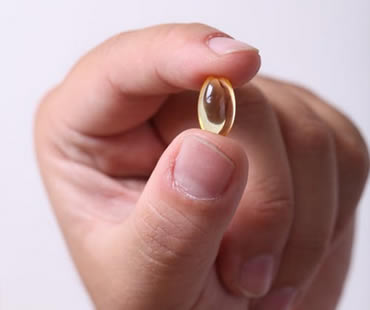
Though sports drinks and energy drinks may provide refreshment after a workout or keep you awake to study, they can also do serious damage to your teeth. People often think of these drinks as healthy alternatives to soda, but that’s not the case. In fact, research shows that these beverages are up to 10 times worse for your oral health than cola.
The issue with sports and energy beverages comes from the high acidity. Manufacturers add acid to these drinks to balance the sugar. Even more than soft drinks, the acid in sports and energy beverages can erode tooth enamel, which increases the odds of cavities. Once teeth are weakened by decay, you become more susceptible to future problems down the road.
Another reason sports and energy drinks are problematic is the way people consume them. Because most individuals sip on them throughout the day, teeth are continuously exposed to the acid in the beverages. To minimize the risks to your oral health, consider these tips:
- Use a straw when you consume these beverages because it restricts the amount of liquid that gets on your teeth.
- Chew sugar-free gum, which promotes saliva production and rinses the acid from your teeth.
- Brush your teeth right after drinking sugary beverages to remove any residue and keep teeth healthy.
- Make H2O your first choice. Consuming lots of water and limiting intake of sodas, sports beverages, or energy drinks will help you stay hydrated and promote good oral health.
Family and general dentist in Longview

Across drugstore and grocery aisles, toothpaste options line the shelves. Brushing plays an important part in maintaining dental hygiene. With all the choices, you may feel like it’s a tough to make a decision. Knowing the difference between whitening toothpaste and natural toothpaste can help you decide the best option for your smile.
Cavity-fighting toothpaste
When used correctly, all toothpastes ward off cavities by removing plaque from teeth. Choosing toothpaste with fluoride will protect enamel from erosion and strengthen your teeth. Children under six shouldn’t use fluoride toothpaste because they can ingest too much and end up with white spots on their teeth from overexposure to the fluoride.
Whitening toothpaste
Although these options will remove staining, whitening toothpastes don’t work as well as professional teeth whitening. For temporary results and a brighter appearance, many people swear incorporate whitening toothpaste into their hygiene routines.
Antibacterial toothpaste
Some of the newer products have an antibacterial agent called triclosan that may help protect gums from the bacterial infections that cause gum disease. Since these toothpastes haven’t been on the market that long, the jury is still out on their effectiveness.
Natural toothpaste
Found in most health food stores, all-natural toothpastes are typically fluoride-free. Often, natural toothpastes contain ingredients such as peppermint oil, myrrh, or aloe to clean teeth and freshen breath.
Toothpaste for sensitive teeth
If eating ice cream or drinking coffee causes tooth pain, toothpaste designed to minimize sensitivity might be good for you. These compounds work by desensitizing teeth and blocking the tubules that reach the nerves in your teeth.
Our dental office is located in Longview

There are few things more irritating than having a painful, swollen sore in your mouth. It bothers you while eating, talking, and even just sitting around. There are a number of types of mouth sores with different causes. Some are infections from bacteria, viruses, or fungus. Or they can be a result of an ill-fitting denture, broken tooth or filling, or loose orthodontic wire. Mouth sores can also be a symptom of a medical condition. Here are some details about common mouth sores.
Canker sore
These small sores occur inside your mouth, and are white or gray with a red outline. They aren’t contagious, but are recurring and can happen one-at-a-time or several at once. Experts believe that lowered immune systems, bacteria, or viruses are risk factors. Canker sores often heal by themselves in about a week, and topical anesthetics or antibacterial mouthwashes may provide relief.
Cold sore
Also called fever blisters, these sores occur outside of your mouth around your lips, nose, or chin. These blisters filled with fluid are caused by the herpes simplex virus type 1, and are extremely contagious. Once you have been infected with the herpes virus, it remains in your body and occasionally flares up. Cold sores usually heal in about a week on their own. Topical anesthetics may help, and your dentist might prescribe antiviral medications to reduce outbreaks.
Candidiasis
Also called oral thrush, candidiasis is a result of the yeast Candida albicans reproducing in large quantities. It usually happens to those with weakened immune systems, and is common with people wearing dentures or with dry mouth syndrome. Candidiasis is also linked to taking antibiotics. Controlling candidiasis is done by preventing or controlling the cause of the outbreak. Ask your dentist for advice.
Leukoplakia
Common with tobacco users, leukoplakia are thick white patches on the inside of your cheeks, gums, or tongue. In addition to tobacco use, they can also be caused by ill-fitting dentures or continual chewing on the inside of your cheek. Leukoplakia is linked with oral cancer, so your dentist may advise a biopsy if the patch looks suspicious.
Contact our dental office in Longview to schedule a dental checkup.

As we age, our teeth and gums change. Proper care of your teeth as well as eating a good diet can keep your smile beautiful and strong. Certain vitamins and minerals also help promote optimal oral health.
As we age, our teeth and gums change. Proper care of your teeth as well as eating a good diet can keep your smile beautiful and strong. Certain vitamins and minerals also help promote optimal oral health.
Vitamin A
Besides aiding with vision, Vitamin A also helps with the development of healthy teeth and gums. As well, Vitamin A contains beta-carotene, which has antioxidant properties. These antioxidants assist in getting rid of free radicals, chemicals that speed up decay in the body.
Vitamin C
Also called ascorbic acid, Vitamin C assists with the absorption of iron, maintains healthy connective tissues, and promotes strong teeth and gum tissue. Because Vitamin C is water-soluble, it is washed out of the body once it has what it needs, people should take in Vitamin C every day.
Vitamin D
Created after exposure to sunlight, Vitamin D encourages calcium absorption as well as helping keep the right levels of calcium and phosphorous in the blood stream. Children need to get enough Vitamin D so that they will develop healthy teeth and bones, so it is often added to milk.
Calcium
No matter your age, every person needs to take in enough calcium because this mineral is crucial in the development and maintenance of teeth and bones. In fact, your jaw bone forms the foundation that houses your teeth.
Getting What You Need
Eating a balanced diet will ensure that your body has the vitamins and minerals needed to keep your smile vibrant for a lifetime. Dairy products like yogurt and cheese as well as vegetables such as broccoli and peas are high in calcium. Have lots of egg yolks, fatty fish, and fortified dairy products when you need Vitamin D. Citrus fruits, melons, berries, and tomatoes offer plenty of Vitamin C, and you can find Vitamin A in dark green or yellow fruits and vegetables, eggs, or low-fat dairy products.

How much do you really know about your mouth? Most people understand basic brushing and flossing, but they may not realize the myriad of factors that influence dental health. Knowing how your lifestyle impacts your teeth and gums can help you make the best choices to protect your smile.
True or False: You don’t need to floss every day.
Answer: False. Brushing alone won’t protect your mouth from decay or gum disease. Floss gets hard-to-reach areas, cleaning out the plaque and bacteria that wreak havoc on your oral health.
True or False: Taking care of your tongue is important, so you should brush it regularly.
Answer: True. The tiny bumps on your tongue called papillae trap food and bacteria, which can cause bad breath. Brushing twice a day will keep your breath smelling great.
True or False: Soft drinks and sports drinks don’t damage teeth.
Answer: False. These beverages, as well as red wine and fruit juices, can lead to enamel erosion. It’s best to stick with water, but if you consume these drinks, rinse your mouth when you finish.
True or False: It’s okay to put your baby to bed with a bottle of juice or milk.
Answer: False. When you let your baby or toddler fall asleep with anything but water, you increase the risk of baby bottle tooth decay. This condition occurs because of prolonged bottle feeding, usually during sleep. Young children don’t have good plaque removal, so these beverages provide a breeding ground for bacteria.
True or False: Fluoride reduces decay 20 to 40 percent.
Answer: True. Drinking water with fluoride strengthens tooth enamel and also reduces the amount of acid that the bacteria in your mouth produce. Since fluoride was added to the drinking water supplies across the country, childhood cavity rates have dramatically dropped.
Schedule a dental cleaning appointment today at our Longview dentists office.

What you eat and drink can affect your oral health. A balanced diet will boost your body’s natural immune system, helping to lower your risks for oral problems. There are also certain foods and drinks that you should avoid in order to pave the way for healthy gums and strong teeth. Read on to learn how to ensure that your smile is safe and strong.
Cut down on snacks
Try to limit snacking between meals. The more often you eat, the more bacteria is stimulated and more acid is created. It is especially harmful to snack on sweet or starchy foods, which can harm your teeth and gums more quickly.
Limit sugar
Avoid foods and drinks that are high in sugar. It can stick to your teeth and if not removed promptly and thoroughly, can lead to tooth decay.
Watch what you drink
Drink plenty of water, and avoid sodas and fruit juices. Both of these can be sugary and acidic, which can harm your tooth enamel and cause decay.
Maintain a healthy diet
Try to eat a balanced diet consisting of the five major food groups. A well-balanced diet provides the vitamins, minerals, and other nutrients that your teeth and gums need. Fresh vegetables and fruits, and foods rich in calcium, are good choices for your oral health.
Practice good oral hygiene
Contact our Longview dental office to learn about good dental hygiene techniques that will help you prevent tooth decay and gum disease. Brush your teeth at least twice a day, floss daily, and see your dentist for regular checkups.
If you need a dentist in Longview contact us today









